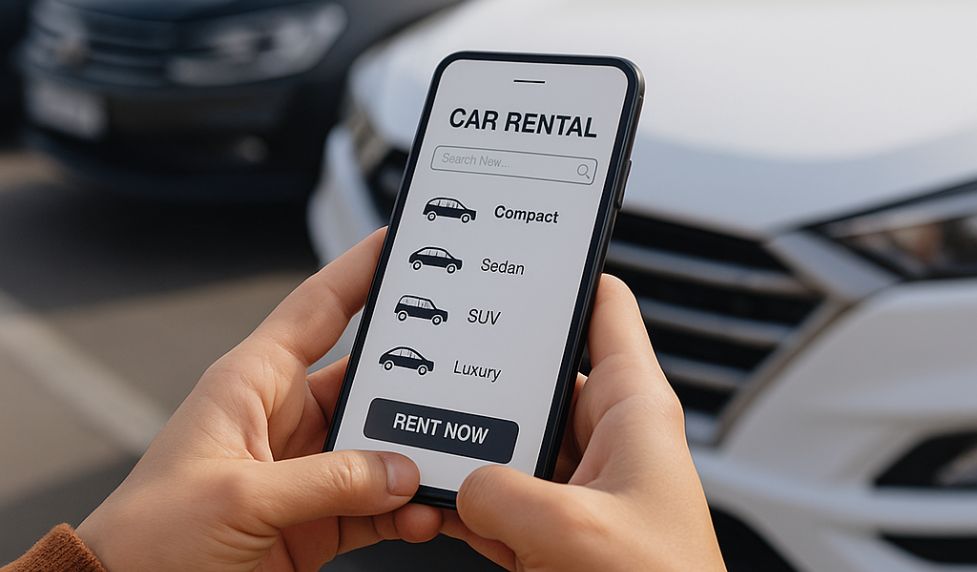In today’s fast-paced world, people want flexible and affordable mobility options without the long-term commitment of owning a vehicle. Traditional rental companies, while still widely used, often come with high costs, limited fleets, and time-consuming booking processes. This gap has created an opportunity for app-based car rental services that provide quick, transparent, and on-demand access to vehicles.
With the rise of the sharing economy and increased reliance on digital platforms, car rental apps have become a popular choice for both travelers and everyday commuters. This growing demand is pushing the industry into a new phase of innovation, driven largely by peer-to-peer car rental platforms.
Understanding Peer-to-Peer Car Rental Apps
A peer-to-peer (P2P) car rental app is a platform that allows individual car owners to rent out their vehicles directly to other people who need them. Unlike traditional rental companies with fixed fleets, these apps create a sharing economy marketplace where every participating car owner becomes a potential provider.
This makes the service highly flexible. Renters enjoy a wider variety of vehicles at competitive prices, while owners can earn extra income from cars that might otherwise sit unused. It’s a modern solution that brings together convenience, affordability, and technology.
How Peer-to-Peer Car Rentals Work
The process is designed to be simple and seamless. Car owners (often referred to as hosts) list their vehicles on the app, add photos, pricing, availability, and any special conditions. Renters then browse these listings, compare options, and book a car for the period they need.
The app acts as the middleman by handling secure payments, contracts, and often even insurance. This ensures both parties feel safe and confident. Once booked, the renter picks up the car at the agreed location, uses it during the rental period, and returns it without hassle.
Why Are These Apps Growing in Popularity?
The demand for P2P car rental apps has been growing steadily, and in 2025, the trend is stronger than ever. One of the biggest drivers is cost savings. Traditional car rental companies often charge higher fees, while P2P rentals are usually more affordable.
Another reason is choice. Instead of being limited to standard vehicles, renters can pick from a wide range — from compact cars for city rides to luxury models for special occasions. This variety appeals to modern travelers who want more personalization.
Moreover, the growing digital lifestyle means people now expect mobile-first solutions. Being able to search, book, and pay through an app is far more convenient than visiting a rental desk. This shift in behavior is helping P2P car rentals become a mainstream choice.
Essential Features of a Successful Car Rental App
To succeed in such a competitive space, a car rental app needs a strong set of features. User registration ensures both owners and renters have verified profiles, while a smart search system with filters for price, car type, and location makes browsing easy.
Equally important are real-time availability and a smooth booking system. Renters should know instantly if a car is free and be able to confirm within seconds. A secure payment gateway ensures transactions are safe, while insurance integration builds trust.
Other key features include ratings and reviews to maintain transparency, in-app chat for communication, and GPS tracking for navigation and security. On the backend, an admin dashboard helps manage listings, monitor transactions, and analyze user data.
Benefits for Car Owners
For car owners, the advantages are clear. A vehicle that would otherwise sit idle can now generate income. Even if it’s rented only a few times a month, it offsets ownership costs like maintenance and insurance.
Owners also retain full control — they decide when to list the car, how much to charge, and who gets to rent it. Many platforms provide insurance coverage, giving owners peace of mind in case of accidents. With low entry barriers, almost anyone with a qualifying car can join the system and start earning.
Benefits for Renters
On the other hand, renters also enjoy several benefits. They often find P2P options cheaper than traditional rental services, especially for short-term use. They also gain access to a diverse fleet of cars, which means they can book something tailored to their exact needs — whether that’s a small car for errands or a premium SUV for a weekend road trip.
The entire experience is more convenient. Renters don’t need to stand in line at rental counters or fill out lengthy forms. Instead, they can complete the process in just a few taps. With reviews, ratings, and secure payments, the system also provides trust and transparency.
Challenges in Building and Managing Such Platforms
Despite the growth, creating and running such platforms is not without challenges. Regulatory issues can be complex, as car-sharing rules vary between regions. Insurance is another hurdle — providing adequate coverage to both parties is essential for long-term success.
Trust and safety are always concerns. Platforms must ensure both renters and owners follow rules, return cars on time, and keep vehicles in good condition. Finally, the technology itself requires investment. A scalable and secure app with strong backend systems isn’t cheap to build from scratch.
Business Opportunities in the Car Rental Market
The rising demand makes this a prime time for entrepreneurs to enter the industry. However, building a platform from the ground up takes significant time and resources. Many businesses are now choosing ready-made peer-to-peer car rental app solutions that can be customized, scaled, and launched quickly.
This approach reduces risk, saves months of development time, and allows companies to focus on growth and marketing rather than technical complexities. It’s a smarter way to tap into a booming industry without reinventing the wheel.
For example, solutions like a car rental app clone provide entrepreneurs with all the essential features of a modern P2P rental marketplace, while still allowing customization to match unique branding and business needs.
Conclusion
Peer-to-peer car rental apps are no longer just an alternative to traditional rentals — they are reshaping the industry itself. By providing flexibility, affordability, and digital convenience, they are changing the way people access cars in 2025.
For businesses, this shift creates opportunities too. Those who want to launch their own peer-to-peer car rental platform can take advantage of advanced, ready-made app solutions that provide all the features needed to succeed. With the right approach, entering this market can be both faster and more profitable than ever before.




